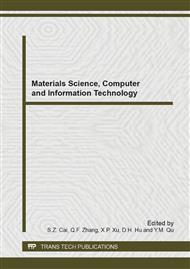p.4474
p.4478
p.4482
p.4488
p.4493
p.4497
p.4501
p.4506
p.4510
Study on the Adaptive Congestion Control Algorithms for Wireless Sensor Networks
Abstract:
As the study on and promotion of wireless sensor networks (WSN) are deepening, people have increasingly higher requirements for the transmission speed and transmission performance of wireless sensor networks. Network congestion is an important factor of the transmission performance of a network, so congestion control becomes a hot research topic in the studies on the improvement of WSN services. Based on the study on WSN congestion control mechanism, this paper proposes an adaptive congestion control algorithm and simulates the algorithm. The simulation result shows that this algorithm can ensure stable network performance.
Info:
Periodical:
Pages:
4493-4496
Citation:
Online since:
July 2014
Authors:
Keywords:
Price:
Сopyright:
© 2014 Trans Tech Publications Ltd. All Rights Reserved
Share:
Citation:


